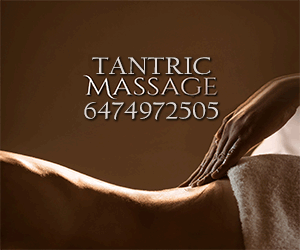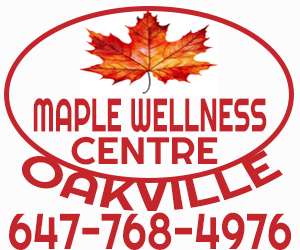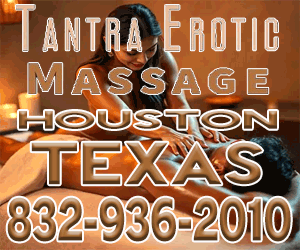
bill, Nebraskans will no longer need a time-consuming license to massage cats, dogs or horses. While it may sound like a Portlandia sketch, animal massage therapy can relieve tension, boost range of motion and help with rehabilitation after trauma. And with roughly one horse for every 12 humans, Nebraska’s equine economy generates roughly $700 million each year.
The bill was spurred by Karen Hough, who began massaging horses at her farm in central Nebraska as a way to become more financially stable. But in 2012, Hough received a stunning “cease and desist” order from the Nebraska Department of Health and Human Services. Hough’s soothing touch was regarded as the “unlicensed practice of veterinary medicine,” a felony that could be punished by a $25,000 fine and up to 20 years in prison. To comply with the law, Hough was forced to put her side business out to pasture.
In this March 1, 2018 photo, Jane Fucinaro works with 9-year-old Wakema during an equine body work session in Blair, Neb. A bill introduced by Nebraska state Sen. Mike Groene of North Platte, proposes to exempt equine massage practitioners from state job licensing requirements. Under the current law, equine massage practitioners must have a massage therapist license or work under veterinary oversight. (AP Photo/Nati Harnik)
“My customers were really angry that the state of Nebraska was telling them who they could hire to massage their horses,” Hough told the Platte Institute, a Nebraska think tank that advocated for the new law. “They’re not going to take their horse to somebody if they’re not confident they’re going to make their horse better.”
In order to work legally, Hough had two options: She could either become a licensed veterinarian (which would take years of training in classes completely irrelevant to massaging horses) or she could obtain a license in animal therapy. For the latter, Hough would first have to become a licensed (human) massage therapist, which, in Nebraska, requires at least 1,000 hours of training, or roughly 230 days.
Only two states have stricter licensing requirements for massaging people (a practice that’s unlicensed in neighboring Kansas and Wyoming). But even if she got that credential, Hough would then have to complete another 150 hours of training before she could fully earn the government’s permission to work.
By saddling entrepreneurs with stiff restrictions, Nebraska completely rubbed out the animal massage therapy industry. The state does not have a single licensed animal massage therapist or any approved courses in the field.
“I told some of the children whose horses I worked on, ‘In America, we don’t break the law, we change the law.’ They’re now in college. Time flies when trying to work with government,” Hough said.
">
Life in the Cornhusker State may soon get a lot less stressful. Thanks to a newly signed bill, Nebraskans will no longer need a time-consuming license to massage cats, dogs or horses. While it may sound like a Portlandia sketch, animal massage therapy can relieve tension, boost range of motion and help with rehabilitation after trauma. And with roughly one horse for every 12 humans, Nebraska’s equine economy generates roughly $700 million each year.
The bill was spurred by Karen Hough, who began massaging horses at her farm in central Nebraska as a way to become more financially stable. But in 2012, Hough received a stunning “cease and desist” order from the Nebraska Department of Health and Human Services. Hough’s soothing touch was regarded as the “unlicensed practice of veterinary medicine,” a felony that could be punished by a $25,000 fine and up to 20 years in prison. To comply with the law, Hough was forced to put her side business out to pasture.
In this March 1, 2018 photo, Jane Fucinaro works with 9-year-old Wakema during an equine body work session in Blair, Neb. A bill introduced by Nebraska state Sen. Mike Groene of North Platte, proposes to exempt equine massage practitioners from state job licensing requirements. Under the current law, equine massage practitioners must have a massage therapist license or work under veterinary oversight. (AP Photo/Nati Harnik)
“My customers were really angry that the state of Nebraska was telling them who they could hire to massage their horses,” Hough told the Platte Institute, a Nebraska think tank that advocated for the new law. “They’re not going to take their horse to somebody if they’re not confident they’re going to make their horse better.”
In order to work legally, Hough had two options: She could either become a licensed veterinarian (which would take years of training in classes completely irrelevant to massaging horses) or she could obtain a license in animal therapy. For the latter, Hough would first have to become a licensed (human) massage therapist, which, in Nebraska, requires at least 1,000 hours of training, or roughly 230 days.
Only two states have stricter licensing requirements for massaging people (a practice that’s unlicensed in neighboring Kansas and Wyoming). But even if she got that credential, Hough would then have to complete another 150 hours of training before she could fully earn the government’s permission to work.
By saddling entrepreneurs with stiff restrictions, Nebraska completely rubbed out the animal massage therapy industry. The state does not have a single licensed animal massage therapist or any approved courses in the field.
“I told some of the children whose horses I worked on, ‘In America, we don’t break the law, we change the law.’ They’re now in college. Time flies when trying to work with government,” Hough said.
Let's block ads! (Why?)
































































































